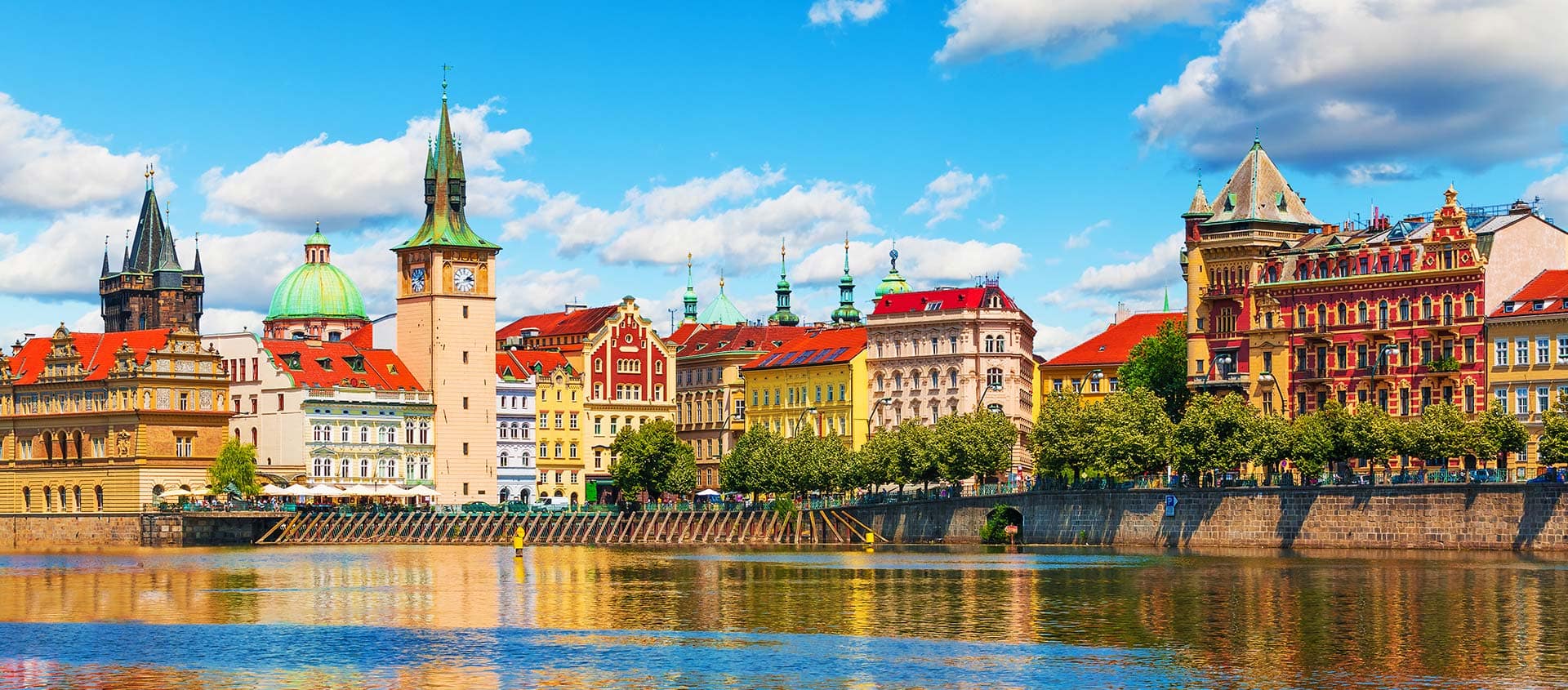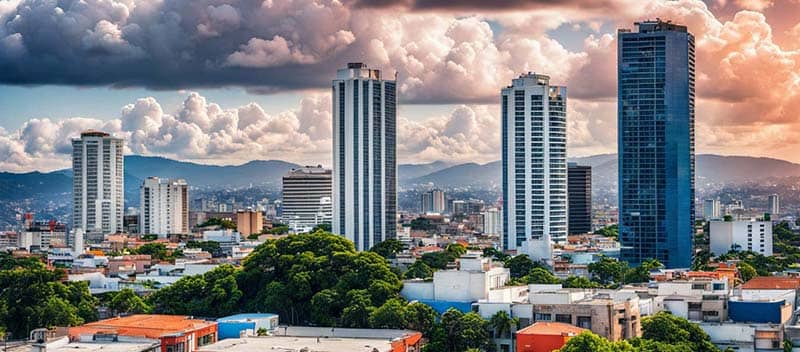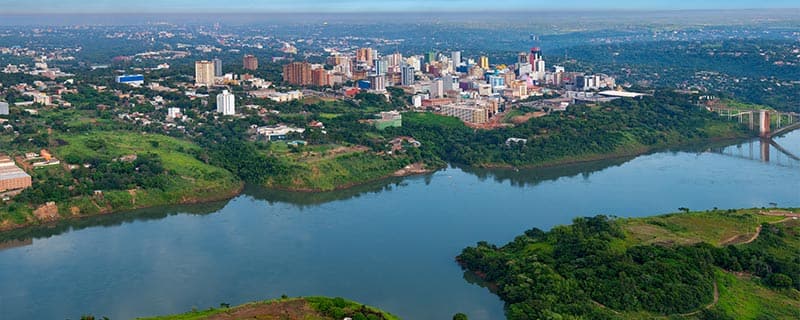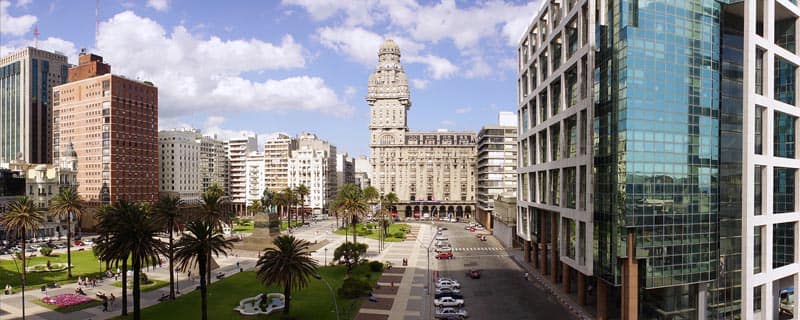Moving from Switzerland to Hungary
A move to Hungary from Switzerland opens up new opportunities – from a more affordable standard of living to an exciting cultural restart. To ensure that your immigration project is successful, it is important to gather information early about the country, its people, and the organizational steps involved. Below, you will find a comprehensive guide on life in Hungary, the planning of your move from Switzerland to Hungary, and all the necessary formalities. This will help you make a smooth transition to your new life in the heart of Europe, well-prepared and confident.
Lifestyle and Culture in Hungary
Hungary offers a versatile lifestyle shaped by warm hospitality and rich tradition. Hungarian society is known for being friendly and family-oriented – newcomers are often warmly welcomed. For food lovers, Hungarian cuisine offers hearty specialties like goulash (Gulyás), paprika chicken, and lángos. Spicy paprika powder is an essential ingredient in almost every dish, and local wines (such as those from the Tokaj region) complete the flavor experience. Coffee culture and sweet pastries (such as strudel or Kürtőskalács, the “chimney cake”) also play an important role in daily life.
Nature and Leisure: Hungary’s landscape is diverse – from the vast plains of the Puszta to hilly vineyards and river landscapes. A highlight for nature lovers is Lake Balaton (Plattensee), Central Europe’s largest inland lake, which invites sailing, swimming, and picturesque sunsets in the summer. 
Climate and Differences to Switzerland: The climate in Hungary differs noticeably from Switzerland. The country has a pronounced continental climate with hot summers and cold winters. In particular, the temperatures in the plains can easily exceed 30°C in summer – much warmer than in many regions of Switzerland. Winters are cold, with temperatures often below freezing, but generally drier and with less snow (except in the northern mountain regions) than in the Swiss Alps. Hungary also experiences more sunshine; the city of Szeged is even called the “City of Sunshine” due to its many sunny days. Those coming from the rainier Switzerland will likely enjoy the long, warm summers and golden autumns in Hungary. However, the heat in July/August can be an adjustment, and having air conditioning in your apartment is definitely a plus.
Cost of Living: Hungary vs. Switzerland
A key advantage when moving to Hungary is the significantly lower cost of living compared to Switzerland. In nearly all areas – housing, groceries, restaurants, transport – the price level in Hungary is lower. For example, in Budapest, you can rent an apartment in the city center for a fraction of the cost of rent in Zurich or Geneva. Even outside the capital, rents and property prices are very attractive, allowing many expats to afford a larger house or a condominium.
Everyday Expenses: The cost of groceries and leisure is significantly lower in Hungary compared to Switzerland. A weekly shopping trip at the market or supermarket is affordable, especially for local products and seasonal fruits/vegetables. Dining out is inexpensive by Swiss standards: In Budapest, you can enjoy a good dinner for the equivalent of 10–15 CHF, and even in smaller cities, dining out or having a glass of Hungarian wine is affordable. Public transportation (bus, tram, metro) costs only a fraction of the Swiss public transport rates, and gasoline and highway fees (via e-vignettes) are also moderate.
Advantages and Disadvantages for Expats: The low price level means that with a fixed income or savings from Switzerland, you have significantly more purchasing power in Hungary. Retirees or remote workers from Switzerland appreciate that they can often maintain or even improve their standard of living in Hungary without straining their budget. However, it should be noted that local salaries are also much lower. If you work locally in Hungary, you will earn a considerably lower salary than in Switzerland – so the cost of living balances out from a local perspective. Other differences: Hungary’s tax and social system is structured differently (e.g., a flat income tax rate of 15%, but a high VAT rate of 27%). Public services like healthcare or education are affordable or state-funded, but may not always meet the quality or facilities standards you are used to in Switzerland. For example, you might experience longer waiting times at the doctor or have to adjust some insurance coverage. However, many expats give a positive review: the savings in daily life and the overall more relaxed lifestyle (without constant financial pressure like in expensive Switzerland) make Hungary an attractive destination.
Economic Situation and Opportunities for Professionals
Hungary’s economy has developed dynamically in recent years and offers interesting perspectives for foreign professionals. The unemployment rate is expected to be around 4-5% in 2025, which indicates a robust labor market. Several sectors are booming and looking for qualified employees – your Swiss expertise could be in demand.
Key Sectors: The Hungarian economy is highly export-oriented and industrially driven. The automotive industry plays a major role: In cities like Győr (Audi factory) or Kecskemét (Mercedes-Benz), German manufacturers operate large production facilities. A new BMW plant in Debrecen is about to open and is already attracting highly qualified workers. In addition, the IT and technology sector (especially in Budapest, where many IT companies, startups, and international corporate service centers are based) and the pharmaceutical and healthcare sector are growing. Skilled workers in construction and engineering are also in demand, as much investment is going into infrastructure and real estate. Hungary is also trying to attract foreign investments in high-tech and research – for example, logistics centers and research projects are emerging, where multilingual specialists have good opportunities.
Professional Opportunities for Expats: Expats from Switzerland have various opportunities. In international companies in Hungary, English or German are often business languages, which makes integration easier. In Budapest, there are many shared service centers, consulting firms, and banks, where German language skills are an advantage – for example, in customer service for the DACH region or in the finance sector. Swiss companies also have branches in Hungary; if you are internally transferred, the move can go smoothly. For entrepreneurial-minded individuals, Hungary offers relatively low wages and labor-related costs, making it an attractive place to start a local business or startup (once you familiarize yourself with local laws). However, it’s important to note the language barrier: Hungarian is one of the few challenges in both work and everyday life. Although in the business world, English is often sufficient, and many Hungarians also speak some German, it is worthwhile to acquire at least basic Hungarian skills to truly integrate – especially outside Budapest. This not only helps with job hunting but also with social integration and building relationships with colleagues.
Moving Services from Switzerland to Hungary
An international move from Switzerland to Hungary is logistically challenging but can be managed with professional help. Specialized moving companies offer comprehensive services – from planning and packing to transportation and delivery at your new home. Since Switzerland is not part of the EU customs union, there are a few more formalities to consider when moving from Switzerland to Hungary than for intra-European moves. Here’s an overview of the key steps and options:
Packing, Pickup, and Transport
Packing & Dismantling: A good moving service starts with the proper packing of your belongings. Experienced movers can come to your home in Switzerland a few days before moving day to pack all your possessions carefully. Furniture is dismantled, delicate items are secured in bubble wrap or special boxes, and each moving box is labeled. This ensures that your belongings survive the long journey intact. Of course, you can pack yourself, but for fragile items or a large household, professional service is recommended to prevent damage during transport.
Pickup & Loading: On moving day, the moving company arrives with the truck at your location. The movers systematically load all boxes, furniture, and appliances onto the vehicle. In Switzerland, access to loading zones can sometimes be narrow or regulated – a local moving partner will take care of parking restrictions or permits if necessary. Once everything is safely loaded and secured, the truck heads towards Hungary.
Transport Route: The route typically goes through Austria (e.g., via Vienna) to Hungary. The travel time from Zurich to Budapest is about 11–12 hours of driving time (around 1,100 km) – usually spread over two days with breaks. However, additional time is needed for customs clearance at the Swiss border and at the EU border (more on this in the customs section). Most moving companies plan for the truck to arrive at your destination in Hungary within 3–5 days of pickup in Switzerland. This timeline can vary depending on whether it’s direct transport or shared load.
Delivery & Setup: Once at your new home in Hungary, the team unloads the goods and brings everything to the appropriate rooms. Furniture is reassembled, and boxes are unpacked if requested. A full-service move often includes the disposal of packing materials – so you can focus on setting up your new home. Tip: Take a quick walk through the new apartment with the movers so they know where each piece of furniture goes. After delivery, it’s a good idea to check against an inventory list to ensure everything arrived complete and undamaged.
Shared Load vs. Exclusive Transport
When planning your move from Switzerland to Hungary, you’ll encounter the terms shared load and exclusive transport. These two transport options differ mainly in cost and flexibility:
- Shared Load: In this option, you share the truck’s cargo space with other customers. Your belongings are transported alongside the goods of others. This is ideal for smaller moves (e.g., if you only have a few pieces of furniture or limited goods to move). The cost is much lower as transport costs are split. However, the delivery date can be more flexible – the moving company coordinates the transport so that multiple deliveries are combined along the same route, which might result in longer delivery times. For a student or single household, a shared load can be an ideal way to save on costs.
- Exclusive Transport: With an exclusive transport (also known as full or direct transport), the truck is dedicated solely to your move. This is the preferred option for larger households or families where an entire truck is needed. The benefit: the transport is direct, with no detours to other destinations, and there are fewer delays. You can usually choose the pickup and delivery dates in consultation with the moving company. However, this convenience and speed come at a higher price – you bear the full transport cost. If timing is important or you are moving a complete household, this option is often more practical.
Many moving companies offer both models. It’s best to consult with them to find the option that suits your volume and budget. A reputable company will assess the transport volume (in cubic meters) and give you a transparent cost breakdown of how much you can save with a shared load, and when an exclusive truck is recommended. Keep in mind that for very short notice moves, exclusive transport is often the best option, whereas with a longer lead time, a shared load can be organized.
Timeline and Planning
A structured timeline helps ensure the move goes smoothly. Here are the typical stages of a Switzerland-Hungary move:
- Early Planning (2–3 months in advance): Start preparations as early as possible. Get quotes from international moving companies and compare services and prices. Plan your preferred moving date – keep in mind that summer and month-end moves are in high demand. Notify your landlord in Switzerland about your move and cancel contracts (rental, utilities, internet) within the required notice period. This is also the time to take care of important documents, such as deregistering your residence in Switzerland and possibly preparing documents for your new residence in Hungary.
- Decluttering and Organizing (1–2 months before): Go through your belongings and decide what to keep and what to leave behind. Moving abroad is a good opportunity to get rid of excess items – sell or donate furniture and goods you won’t need in Hungary. Less volume saves on transport costs. Begin collecting moving boxes and packing materials (if not provided by the moving company), and pack up the items you won’t need right away. Create a detailed inventory list of everything that’s coming – this will be required for customs clearance.
- Final Preparations (last few weeks): The final days before the move should be spent packing and thoroughly cleaning the old home. A detailed plan ensures the move will go smoothly. Final walkthrough and checklist after crossing borders.
Popular Expat Cities in Hungary
More and more expats – including those from Switzerland – are opting to move to Hungary as the country has developed into an attractive destination for expats. Hungary offers high quality of life at comparatively low living costs. Budapest is especially attractive to many expats, but cities like Debrecen, Szeged, and Pécs also offer diverse opportunities for a fresh start in Hungary. Below, we provide an overview of four popular expat cities in Hungary – their advantages, infrastructure, quality of life, and job opportunities – that may be of interest to Swiss emigrants.
Budapest
Budapest is the political, economic, and cultural center of Hungary and the first stop for many expats. The city on the Danube – often referred to as the “Paris of the East” – dazzles with impressive architecture, historical thermal baths, and a vibrant nightlife. With efficient public transport (subway, tram, bus) and an international airport, the infrastructure is excellent. Living costs in Budapest are moderate for a capital city: housing, dining, and leisure are significantly cheaper than in Zurich, without sacrificing urban comfort. Budapest hosts a large international community of over 50,000 expats. Many multinational companies (including IBM, Microsoft) have offices in Budapest, providing a steady stream of high-quality jobs in sectors like IT, finance, pharmaceuticals, and services. English is commonly spoken in business and service sectors, making daily life easier for expats.
Debrecen
The second-largest city in Hungary, Debrecen, lies in the eastern part of the country and offers a more relaxed alternative to the capital. The university city, with about 200,000 inhabitants, has a young, vibrant atmosphere – over 30,000 students (many international) shape the city’s character. Debrecen is even cheaper than Budapest: rents and everyday expenses are lower, which is especially attractive for families and young professionals. Despite its calm atmosphere, the city is far from boring – there is a wide range of cultural activities, including festivals, concerts, and the famous flower carnival held every August. The infrastructure is rapidly developing: Debrecen has its own international airport and good train connections. At the same time, the city is emerging as a dynamic business hub: new industries and major investments (e.g., a new BMW factory) are creating jobs. Companies like BMW, Krones, and Thyssenkrupp have chosen Debrecen, providing expats with opportunities in manufacturing, logistics, and IT. Another advantage: Due to the university and international companies, English is widely spoken, which eases integration for expats.
Szeged
Szeged in the south of Hungary is known as the “Sun City” – no other Hungarian city enjoys as many sunny days (around 2,100 hours of sunshine per year). The third-largest city in Hungary enchants with its beautiful old town, the banks of the Tisza River, and numerous parks and green spaces. Szeged is bike-friendly and safe, contributing to a high quality of life. Living costs are low: rents for apartments – whether in historic buildings or modern new constructions – are affordable, and restaurants and markets are easy on the budget. As a significant university city (with the renowned University of Szeged), the city attracts many young people and foreigners, creating an open and lively culture. English is commonly spoken in the academic and business environment, making life easier for expats. Expats can find job opportunities primarily in education and research (the university and research institutions like the ELI-ALPS laser lab are major employers), in services, and increasingly in the IT sector. Szeged also offers plenty of peace and relaxation – whether enjoying a coffee in the cozy street cafés or attending the famous open-air festivals by the cathedral.
Pécs
In the southwest of Hungary, near the Croatian border, lies Pécs, a city with much to offer for those interested in culture and history. Pécs boasts a 2,000-year history, reflected in its picturesque old town, Roman ruins, and Ottoman landmarks (such as the mosque on Széchenyi Square). The city was named a UNESCO Cultural Capital and carries the title of UNESCO City of Literature – here, you’ll find numerous museums, galleries, and a vibrant craft scene. Despite this cultural wealth, Pécs remains manageable and cozy. The cost of living is among the lowest of Hungary’s major cities: apartments are affordable to rent, and market shopping or dining out is not financially burdensome. Pécs hosts a diverse international student community – over 4,000 foreign students are enrolled at the University of Pécs. Accordingly, the city is open-minded towards expats, and English is commonly spoken at the university and in many public institutions. Job opportunities in Pécs primarily lie in education (university, international schools), healthcare (the medical faculty has a good reputation), and creative industries and tourism. For Swiss expats looking for a relaxed lifestyle in a mild climate, surrounded by vineyards and Mediterranean vibes, Pécs offers a high quality of life away from the bustle of the capital.
Tips for Expats in Hungary
Whether moving to Budapest or one of the smaller cities, it’s helpful to connect with other expats and take advantage of available resources. Online communities and expat platforms offer support with daily life questions, living and working in Hungary, and help you integrate. Below are some recommended resources for expats:
- InterNations Hungary – A global expat network with local communities in Budapest, Debrecen, and other cities. Expats can meet others, attend events, and get tips. (InterNations even has a group for Swiss expats in Hungary.)
- Expat.com Forum Hungary – An active forum where expats can ask questions and share experiences. From bureaucratic issues to housing search and leisure tips: This platform connects expats across borders to discuss life in Hungary.
- XpatLoop Budapest – An English-language portal specifically for expats in Hungary. It provides up-to-date news, event tips, and a directory of useful addresses (from international schools to doctors) in Budapest. XpatLoop also organizes networking events and operates the “Budapest Expats” Facebook group for the international community.
- Debrecen4U Expat Office – The city of Debrecen runs an expat office with this informational platform. Debrecen4U helps newcomers with practical matters (from bureaucratic processes to housing searches) and organizes the “Debrecen Business Expat Club,” where foreign professionals and their families can meet.
- Facebook Group “Expats in Hungary” – You can also connect through social media. This public Facebook group has over 16,000 members who share tips on daily life and events in various Hungarian cities. Regional groups (e.g., for Expats in Budapest or Expats & Locals in Debrecen) are useful for meeting people locally.
Conclusion: Quality of Life and Opportunities for Expats in Hungary
In summary, moving to Hungary offers Swiss expats exciting opportunities. The country impresses with vibrant culture, friendly people, and – for Western European standards – low living costs. The quality of life is high: Whether in the bustling metropolis of Budapest or cozy cities like Pécs, everyone can find the right place to create a new home. Professionally, the larger cities offer a variety of opportunities, and thanks to EU membership, settling in Hungary is relatively uncomplicated for Swiss citizens (despite Switzerland not being an EU member). Of course, every new country comes with its challenges – from the unfamiliar language to understanding local customs. However, Hungary’s active expat community, numerous online resources, and the openness of Hungarians make it easy to integrate and settle in. In short, Hungary offers expats from Switzerland a high quality of life, a welcoming community, and attractive opportunities – a fresh start that can be worthwhile in many ways.
(Information provided without guarantee – as of May 2025. Moving to Hungary: Please ask us for the latest information.)
Top moving countries

ARGENTINA

AUSTRALIA

BRAZIL

CZECH REPUBLIC

EL SALVADOR

GREECE

HUNGARY

IRELAND

PARAGUAY

PHILIPPINES

PORTUGAL

SOUTH AFRICA

THAILAND




